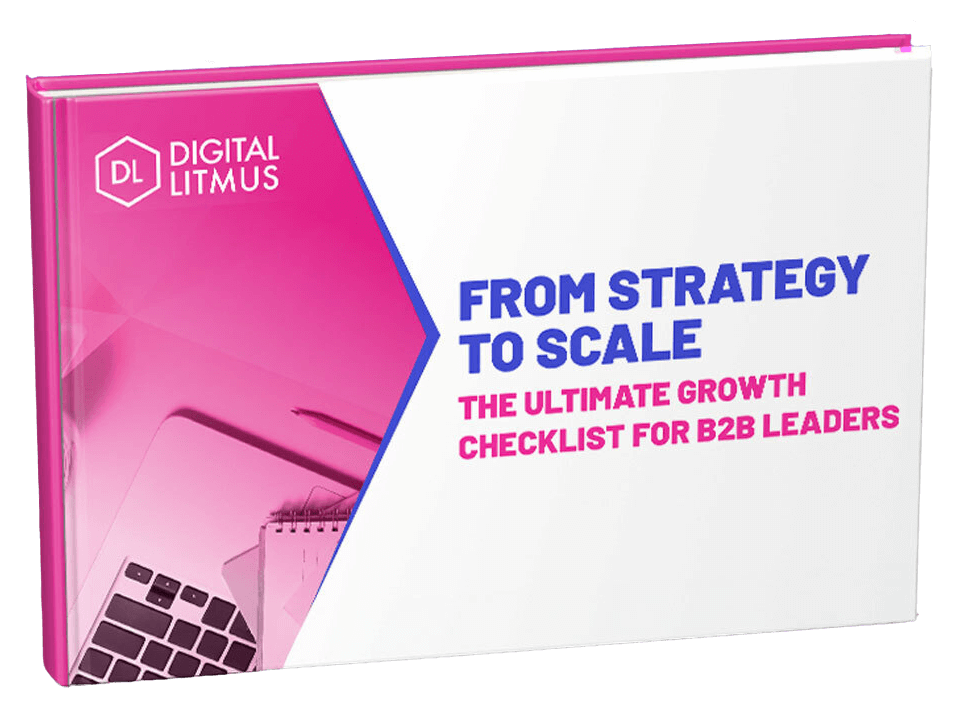If you're a B2B marketer posting only a few blog articles each year, it's time to step up your game.
79% of B2B marketers have a content marketing strategy in place. It's one of the most effective ways to attract an audience online, educate them about what you do, and convert their attention into sales.
But what if you don't have the resources to publish much content?
Thankfully, there's plenty of expertise out there you can make use of without having to make a bunch of new hires. Content marketing is by far the most outsourced marketing activity by B2B marketers, ahead of others like content distribution, editorial planning, or content strategy.
Agencies are well-suited to help you plan and execute B2B content campaigns, with their flexible nature and project-based workflow.
But choosing one isn't always easy – there can be a lot of industry jargon and overblown promises to wade through. Figuring out exactly what you want can be a challenge too, especially if you've not worked with an agency before.
Below, we'll go through exactly what a B2B content marketing agency does, how you can find and select the best agency for your needs, and what the process looks like when you work with an agency to develop a content marketing strategy.
What does a B2B Content Marketing Agency Do?
An agency helps your business grow with content in four ways:
- Strategy: Defining the fundamentals. Content strategy is the plan of action that underpins your content marketing. It defines how your content marketing will support your overall business goals, and an agency should have a deep understanding of how to create an effective strategic plan.
- Production: Creating your content. This is where the strategy becomes tangible, and an agency will create blog posts, videos, podcasts, images, and whichever form of media you've chosen to use. They should be able to repurpose content, too – for example, using a single recorded interview as the basis for multiple social posts, articles, and so on.
- Distribution: Making sure your content gets seen. This is all about choosing the right channels, making clips and snippets for the channel (e.g. custom social posts or marketing emails), and operating a constant flow of promotional activity to maximise visibility.
- Performance measurement: Making sure your content is achieving its goals. With a combination of different tools, a good agency will not only track the relevant metrics (like page views, visitor conversions, and so on) but they'll provide insight into the results, and work with you to adjust course appropriately.
What's the Difference Between B2C and B2B Content Marketing?
While B2B businesses only offer products and services to other businesses, B2C brands sell directly to customers. While the fundamentals of content marketing are similar between the two, there are major differences in the way you reach people and how your content influences buying decisions.
For example, a B2B customer will be more willing to read a case study while a B2C customer could be persuaded by a series of Instagram ads.
The buyer persona you'll be targeting in B2B will be an employee or business owner who will have a say in what their business spends money on – so they might not be the final buyer. Whereas in B2C, you hope that the person consuming your content can make a buying decision, and preferably straight away.
In B2B, buying cycles are longer, and someone might need to be exposed multiple times to your content before they're ready to make a purchase. This means you'll have to carefully plan how you're going to reach them before starting the content production process.
How to Find the Best B2B Content Marketing Agency for Your Needs
First things first – start with a plan.
Before you dive into the world of content, you need to define why you're doing it. Like any other marketing activity, content marketing has to support your wider business goals. Some of the things you might want to achieve could be to:
- Increase sales
- Increase brand recognition
- Build partnerships
- Educate existing customers
- Gain feedback for product development
With these aspects defined, you'll be able to then decide on your:
- Budget
- Goals
- Success metrics
- Timeframe for the project
It's then time to get out there and find a content marketing partner to start making these plans a reality.
Finding a Content Marketing Agency
As far as finding the actual agencies goes, there are a few options out there for you.
One great place to start is our list of the best B2B marketing agencies in the UK. We narrowed down 30 of the nation's best agencies that each have a different approach to B2B marketing. Some are content specialists, while others focus on different aspects of B2B marketing, so there are plenty of options to choose from.
Otherwise, you can always benefit from recommendations from others in your industry. Word-of-mouth reigns supreme in the creative industries, and a trusted source can give you the inside scoop on what a particular agency is like to work with.
There's also the option of review aggregators. Sites like Clutch bring together verified reviews from industry professionals, detailing previous projects in short case studies and showing you how agencies stack up against the competition. (You can see the Digital Litmus Clutch profile which includes our client portfolio, overview of past projects, and quotes from customers we’ve worked with).
Google can also be a great help, showing you reviews that others have left under the local listing information, shown when you search for a particular company name.
So that covers how to find B2B content marketing agencies. But how do you actually choose the one that's right for you?
What to look for in a B2B Content Marketing Agency
Content Marketing Expertise
The agency you end up choosing needs to really understand the purpose of content. Some agencies will simply churn out blogs for you. They'll stuff articles with SEO keywords and bring in cheap writers, which might be outsourced to a country or culture different from the ones you're doing business in. This means there's the potential for poor quality work, inappropriate localisation, bad grammar, lack of strategic purpose, or just being downright boring.
When an agency really gets content, you'll know it. They'll be passionate about the power of interesting media. They'll know that there needs to be a creative edge if you're going to stand out against the vast competition for people's attention.
Specifically, you'll want to ask about previous results. If they've written articles for previous clients, how did the articles perform? Did they attract more visitors through search? Did they improve engagement metrics on social channels?
Most importantly, did they bring a positive return on the client's investment?
Knowledge of Latest Trends and Practices
Some agencies stagnate, neglecting to keep up with the ever-changing world of content marketing. You need to pick one that stays up-to-date in order to get the best results.
One of the most dynamic areas in the industry is SEO (Search Engine Optimisation), where search engines like Google make periodic adjustments to their search algorithms that can cause huge differences in how much traffic they send to indexed sites. Anyone promising you success in content needs to have at least a basic up-to-date knowledge of the world of SEO – what's working, what isn't, and how to future-proof your content to maintain a high chance of success even when things change.
It's a good idea to ask a prospective agency for their take on the current state of content marketing. If they're hesitant or give overly vague answers, it's probably a red flag, and you might want to look elsewhere.
Experience in Your Industry
The agency should also ideally have some experience in your industry or, at the very least, with your target audience. This doesn't mean they need to have worked with a direct competitor before – although that can be helpful – but they should understand how businesses like yours operate and what kind of content will appeal to your target market.
For example, if you're targeting senior decision-makers in large enterprises, you'll want an agency that has written for this demographic before and knows how to craft articles that speak directly to their needs and concerns.
If you're targeting small businesses, on the other hand, you'll want an agency that's used to working with leaner budgets and is comfortable creating content on a budget.
Willing to Share Results & Data
A good agency will be happy to share results and data with you. They should have case studies from previous projects that detail how they helped their clients achieve specific business objectives.
They should also be able to give you a general idea of how they would approach your project and what kind of results you could expect. Remember, however, that no one can guarantee specific results. A good agency will give you a range of potential outcomes based on their experience and expertise.
Performance tracking of your content should be part of your agreement, so make sure they're happy to provide you with ongoing data about the content's performance.
Want to create content that captivates and converts? Let's team up and develop a powerful content marketing strategy that will boost your brand's visibility and engagement. Learn more about our content marketing services today.
The Digital Litmus Process
While we do work on other forms of B2B marketing, when we deliver content marketing projects for clients, there's a specific process we use to deliver results. Here's how it works.
1) SEO Audit
The SEO audit is a fundamental process that's crucial for long-term content success. It's all about understanding the current state of affairs with your online presence, so you know where to direct your efforts next.
SEO is the art of getting you visible on as many search engine result pages (SERPs) as possible, leading to much more traffic to your site.
Our SEO audit typically reviews five main areas:
- Technical: site performance (e.g. page loading speeds), structural errors
- Visibility: domain, traffic and keyword trends to see how you're currently being found through search
- Competitors: investigate what your competitors are ranking for in search engines, benchmarking your performance against them and identifying opportunities to beat them.
- On-page status: internal linking between pages and existing content optimisation
- Backlinks: who's linking to your content, and how much authority this gives you in Google's view
This means that you're left with a portfolio of improvements to make that can have immediate and long-term benefits for your site and the content you publish. You can hand this over to your web admin, or we can help you instead.
2) Strategy
This part of the process involves identifying the right content approach to support your business goals.
During the strategy preparations, we build a roadmap of content to engage your audiences, rank well in search, and power other areas of your demand generation.
It begins with defining your business goals and matching those with objectives of the content. We'll then explore your buyer personas, agreeing on segmentation that informs who the content is made for. This includes identifying their pain points and creating ideas for content that will really help them.
Then, we research your competitors and identify opportunities to beat them in the rankings. We figure out the best channels to reach your audience through, and explore the most effective formats and topics that will appeal to them.
Based on this work, you'll end up with a 12-month roadmap that defines how your content strategy will operate.
3) Production
This is where the creative juices start to flow.
Whether it's blog articles, social media posts, premium ebooks, or other formats, we make content that speaks to your audience in a way that resonates with them.
Our creative formula maximises quality whilst minimising effort. We've refined the operation into an efficient, productive and exciting way of making great work that delivers on its strategic goals.
It's more than just a content process; it's a content engine.
4) Promotion
This step is about distributing your content so the highest number of relevant people will see, understand, and act on it.
The Digital Litmus promotion process involves driving results in the short-term using paid channels, which reduces cost (whilst maintaining results) over the long-term by building your search presence.
5) Performance Measurement
We review the performance of your content project on an ongoing basis.
This is the most important part of the process, as it gives us the chance to change things up depending on how things are working. It's an iterative process where we review results from different parts of the content pipeline (such as SEO metrics, visitor conversions, or traffic levels) as the project is underway. This greatly improves the chance of success instead of blindly following an initial plan no matter what the results are. In short: if the project isn't generating business results, we change things until it is.
A B2B Content Marketing Agency Can Turn You Into a Publishing Powerhouse
Partnering with the right agency can make a huge difference to your content marketing efforts. With the right planning, you can go from posting occasional blogs just because you have to, to being a successful media brand, publishing helpful and exciting content that your audience loves. And that means having a lot more happy customers.

Are you a B2B company looking to accelerate growth?
Our connected sales, marketing, and HubSpot agency services might be just the ticket. Get in touch for your free growth assessment to find out how you can accelerate business growth today.





